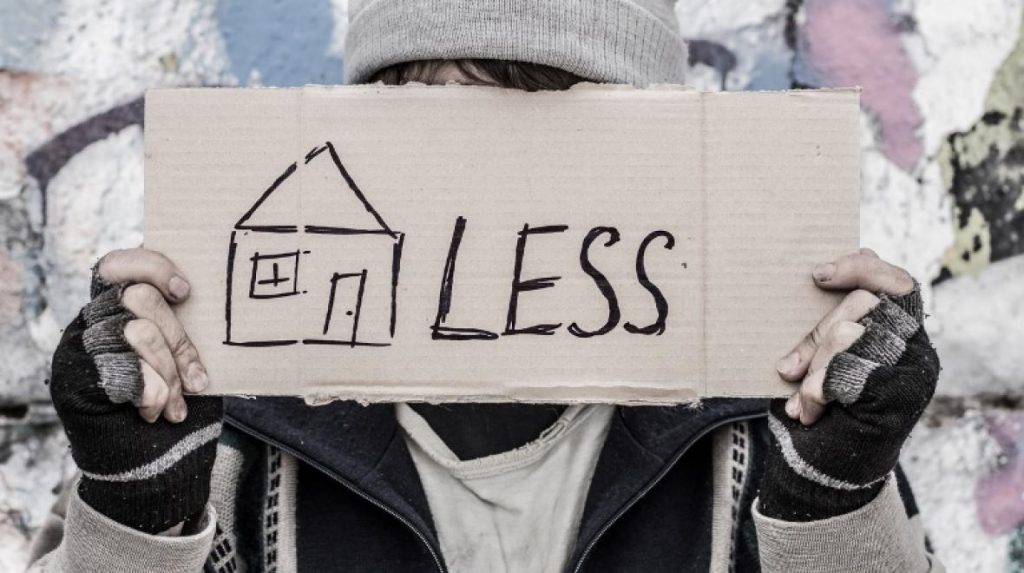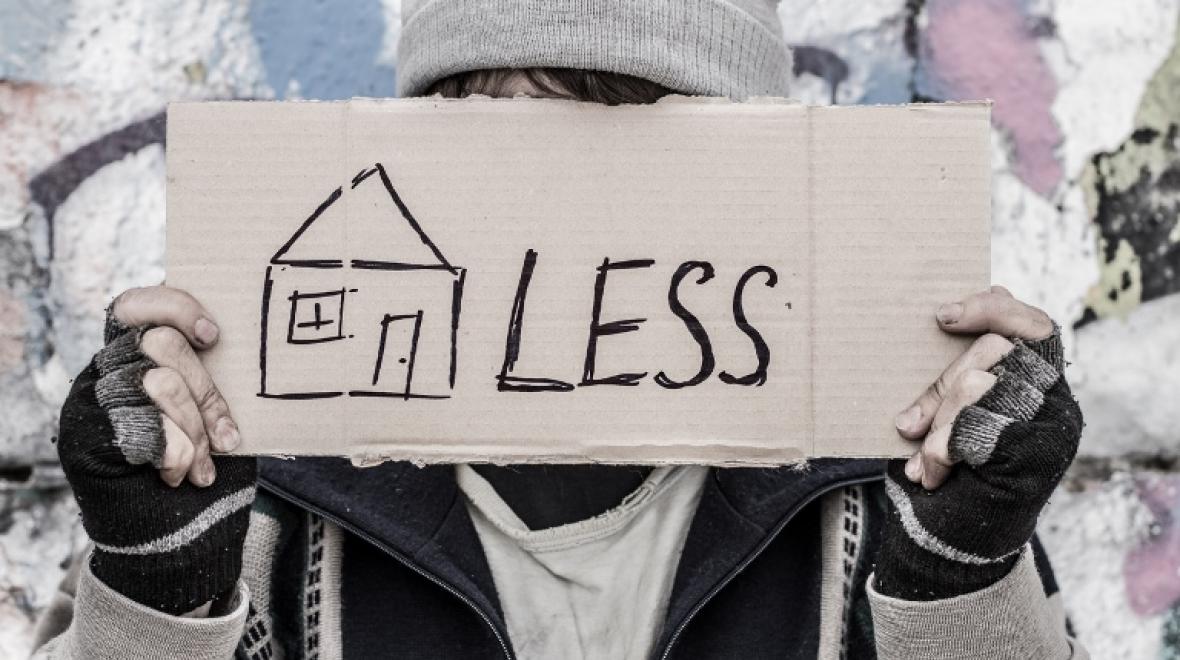
Staff
The day after Halloween the rains began, signaling winter and bringing with it challenges for those sleeping rough. Winter has always been the hardest part of the year for the homeless and this year isn’t going to be any different.
What will be different is the new faces. The 2016 State of Homelessness report reported a decrease in homelessness in America, but stated this was due to “The national decrease in unsheltered homelessness was driven in large part by decreases in unsheltered homelessness in Florida, Texas and Georgia.” The massive loss in those same areas caused by the hurricane season is going to increase those numbers greatly. HUD estimates that 549,928 homeless individuals in the U.S. in their 2016 report are children.
With new faces appearing in the street and winter upon us, we thought it would be prudent to pitch some tips for the newly homeless.
-Don’t Overstay Your Welcome
We know, it’s cold outside and maybe you have friends and family who will let you sleep on the couch while you “get it together.” The thing is, you know whether this is a one-two paycheck deal or if you are actually going to be homeless for the haul. Figure it out and don’t overstay.
The reason for this won’t be clear at first, but you will need emotional support. You will need people to talk to who want to listen. Or who at the very least are willing to pretend to listen. Burning these people out is not going to help you in the long run.
Also, having friends to stop by and visit provides normalcy and comfort, a thing you are going to be losing in a quick hurry. Feeling like a normal person who can shoot the breeze and then leave is going to help your mental health.
So, what is too long? You will know it when you see it. Things like your friends dramatically kick-falling over your rucksack or passive aggressive questions like “do you know who didn’t double flush the toilet-again!”
Save your relationships and save the couch serving for something useful, like the night before an interview or Thanksgiving.
-Save all your important stuff on a thumb drive
Maybe two thumb drives if you tend to lose things. Everything you are going to do, from applying for food stamps to getting a job is going to require documentation. It’s great to have originals and some places are going to require originals; for example if you want to play youth soccer of all things. But sleeping rough means getting wet, dirty and very often, your stuff stolen. Gather your information, go to the drug store or even Dollar Tree and buy a $5-10 thumb drive.
After that, head down to the library and scan that info onto the drive. If your library is unaccountably ancient and some are, a Kinkos or postal box service usually has the capability.
What information should you save? You’re going to want your Driver’s License/I.D. card, Birth Certificate, Passport, Social Security Card, and references. It’s worth your while to put your resume on there and your address/contact book as well.
-Travel light
A fact of being homeless is you are going to be moving around a lot. Some people report walking up to 10 miles a day. As such you’re going to want to travel light. It’s a good time to get rid of things that you don’t need.
Try to fit everything in one backpack. It may seem like a lot to pare down, but not dragging things with you also has the added benefit of making you look less like a homeless person and more like an everyday person.
If you do need to hold on to a few things this might be the time to call in a favour from family and friends to keep a box in the corner of their garage. Or, maybe you can afford a locker if you’re in a bigger city or storage space if you’re in a smaller community.
You must face the facts however, you don’t have a place right now and anything you can’t carry is no longer helpful, it’s a liability.
-Shelter
If you have time going into your homeless stretch, you may want to sell off some of those items you can’t use and invest in a lightweight tent. Most Army Surplus stores will have two-man tents that will fit in your pack for under $40. This is pretty achievable by selling off one or two furniture items you may be leaving behind.
For quick sales, hit up Facebook marketplace and Craigslist. You could also post under “item needed” to see if anyone has a tent knocking about that they don’t need if you had no time, check with places in your area that support homeless people. Places like Salvation Army or and “Mission” or homeless shelter. There is very often access to coupons or tickets for resale stores where you can try to kit yourself out.
If you’re coming up with nothing in the tent arena, invest in two tarps and a rope.
But what about Homeless shelters you ask? That leads us to…
-Research
Research is a must. Whether you are staying in your hometown or looking to relocate to another area, take the time to research what is available to you.
With an afternoon at the library you can find out where the local homeless shelters are and what their policies include. Some will expect you to check in early, like 4pm. This might not work for you if you are working and as we’ll discuss later, working should always be your first choice.
Most shelters won’t tolerate drug and alcohol use, and some provide separate sleeping for women and children while others are co-ed. You may even find shelters that are set up specifically to provide for the LBGTQ population which as it happens is a population most likely to experience homelessness.
If you’re going to be doing busking or panhandling of any sort, it’s a good idea to find out what your city’s regulations are and whether you need a permit. It doesn’t pay in the long run to circumvent the permit laws if it means you’re going to get a ticket or end up a day or so in jail.
Also do your research to find out what resources like food, money, bus tickets, phones, etc. are available to you. Take advantage of all programs you can find and sign up for all the assistance you can immediately upon becoming homeless. This includes, SNAP benefits and Medi-Cal/Medicare as well as housing services usually available through the city you are in and HUD.
-Treat yourself and others with respect
When you’re out in public and using places like the library, try to be the best version of you, taking the high road whether you’re in the mood for it or not. You need to face the fact that you are benefiting from the help of others and just like with family and friends you don’t want to burn any of the bridges available to you.
In addition, you’re going to want to take care of your area if you chose to sleep rough. You’re going to be more likely to be able to stay in one place longer without being moved along if you keep your space clean.
Find a place to stash whatever stuff you need to leave behind out of sight and hike your garbage out each day. Doing this sets you apart from your cohorts and helps the homed population see you in a more charitable light.
-Self-Care
Take time for self-care. You need down time but make sure to use it appropriately. Don’t hang out in areas like schools where you are naturally going to draw attention. As mentioned before, a lot of what you’re going to be doing is walking, whether to keep busy and avoid harassment, or to get from one appointment with social services to the next. Therefore, picking a park where you can sit and relax with ease is going to be a good part of your routine. Everyone needs time in their schedule for reflection and the homeless are no different.
Another important aspect of self-care is cleanliness. Again, research what bathing facilities are in your area. Some have mobile bathing and washing facilities like this one in San Francisco.
Studies have shown that the act of showering helps us feel cared for. In some places it augments the lack of touch that many depressed and traumatized humans experience. It has the added benefit of keeping you healthier by shedding old skin and killing bacteria not beneficial to you. Showering should be an important part of your routine whether at shelters or even a gym. Gyms like Planet Fitness only cost $10/month with no contract and provide a great place to care for yourself physically.
While this is nowhere close to comprehensive, it is a good place to start. Above all, do not lose hope, do not stop working towards small goals (like getting a job) and long-term goals (like housing.) It can be daunting to be suddenly without all comforts and indeed a home. But keeping yourself feeling human and in sound mind is something homeless people pull off every day. Just keep your head up.
*Feel free to add any tips and ideas you might have in the comments thread.

